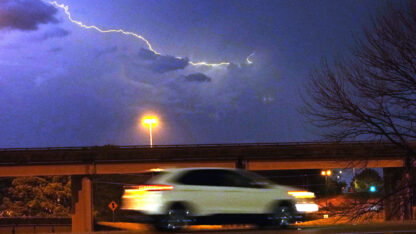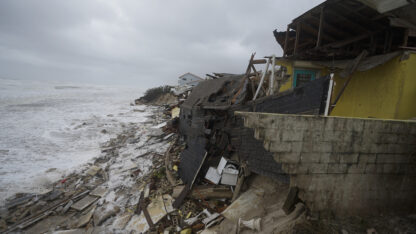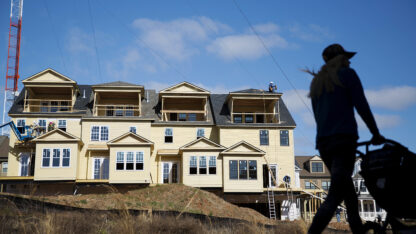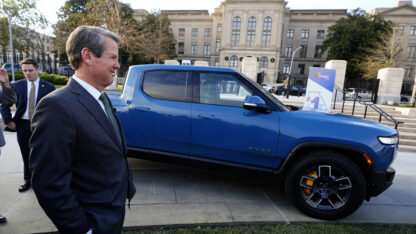Arctic air will blast Georgia, much of US just before Christmas
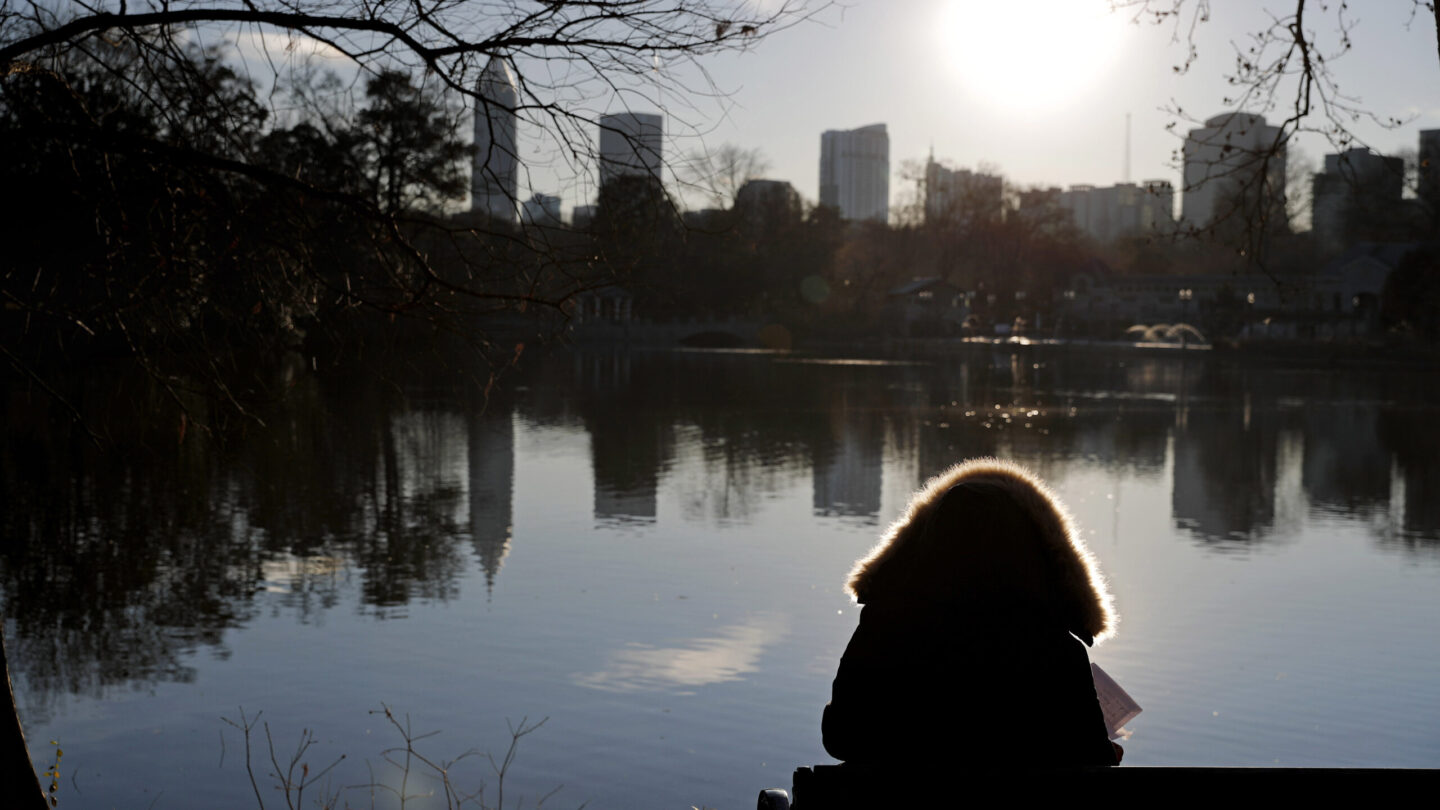
Piedmont Park in Atlanta, Georgia, during a cold stretch in 2018. The low this Friday night in Atlanta will be around 13 degrees with the high temperature Saturday still below the freezing mark at around 29 degrees, the National Weather Service projects.
David Goldman / Associated Press
Forecasters are warning of treacherous holiday travel and life-threatening cold for much of the nation as an arctic air mass blows into the already-frigid southern United States.
“We’re looking at much-below normal temperatures, potentially record-low temperatures leading up to the Christmas holiday,” said Zack Taylor, a meteorologist with the National Weather Service.
The polar air arrives as an earlier storm system gradually winds down in the northeastern U.S. after burying parts of the region under two feet (61 centimeters) of snow. More than 80,000 customers in New England were still without power on Sunday morning, according to poweroutage.us, which tracks outages across the country.
The incoming artic front brings “extreme and prolonged freezing conditions for southern Mississippi and southeast Louisiana,” the National Weather Service in a special weather statement Sunday.
By Thursday night, temperatures will plunge as low as 13 degrees (minus 10.6 Celsius) in Jackson, Mississippi; and around 5 degrees (minus 15 Celsius) in Nashville, Tennessee, the National Weather Service predicts.
For much of the U.S., the winter weather will get worse before it gets better.
The coming week has the potential for “the coldest air of the season” as the strong artic front marches across the eastern two-thirds of the country in the days before Christmas, according to the latest forecasts from the federal Weather Prediction Center in College Park, Maryland.
The center warned of a “massive expanse of frigid temperatures from the Northern Rockies/Northern Plains to the Midwest through the middle of the week, and then reaching the Gulf Coast and much of the Eastern U.S. by Friday and into the weekend.”
The arctic air was already pouring into Montana Sunday night, but that wasn’t deterring residents from ice fishing and hunting coyotes.
Ice fishing will continue through the cold blast, since the temperatures won’t scare away anglers there — “not the hard-core ones anyway,” said Jason Mundel, who runs the Ripp’n Lipps Guide Service in northeastern Montana.
Mundel said it was 4 degrees (minus 15.6 Celsius) there Sunday night, and a coyote contest was still going on in a nearby community. “Those guys are just out in the elements, just bundled up,” he said.
In Atlanta, where temperatures are set to drop below freezing early Monday morning, forecasters warn of even colder air by late in the week, according to the National Weather Service office in Peachtree City, Georgia. The low Friday night in Atlanta will be around 13 degrees (minus 10.6 Celsius) with the high temperature Saturday still below the freezing mark at around 29 degrees (minus 1.7 Celsius), the Weather Service projects.
Freezing temperatures can take lives in an instant — a heartbreaking reality that Atlanta homeless advocate George Chidi knows firsthand.
He went to check on a woman with severe mental health issues in downtown Atlanta earlier this year, and found she had died of suspected hypothermia just hours earlier. Her body was found outside the Greyhound bus station, which is open 24 hours in the heart of downtown Atlanta, he said.
“She died within 100 feet of three heated buildings,” Chidi said.
He said people without housing who die in freezing weather often do so because they are battling alcohol, drugs or severe mental illness, or they do not trust others and find themselves on the streets rather than a shelter with other people.
Homeless people in southern states are also vulnerable to its weather patterns that make it comfortable one week, but suddenly freezing the next.
“A main factor isn’t the temperature itself,” Chidi said. “It’s the speed with which the temperature drops.”
Florida will not have a white Christmas, but forecasters are expecting that weekend to be unusually cold throughout the state.
Northern Florida cities such as Jacksonville, Tallahassee and Pensacola have predicted lows in the 20s (minus 3 Celsius) on Christmas Eve, with highs of about 40 (4 Celsius).
In the Northeast, utility companies brought in extra workers from other states but were hampered by slick roads and dangerous conditions.
“This was a heavy, wet snow so that had impacts on both travel and the infrastructure,” said Frank Pereira, a meteorologist with the National Weather Service.
Police across New England responded to hundreds of crashes or vehicles sliding off the road this weekend. Maine State Police said Saturday night they had responded to more than 180 crashes since Friday evening. There were only minor injuries.
Vermont officials said they’re finding locations for potential warming centers in the hardest-hit areas, in case they’re needed. State officials warned Saturday that some customers’ power may not be restored for two to three days.
“Last night we had some people come in who weren’t able to cook for themselves, and so we definitely made sure that we had room for them,” Becket Gourlay, a host at the Waterhouse Restaurant in Peterborough, New Hampshire, said on Sunday. “Even today we had some people who came in to watch the final match for the World Cup because their TVs were out.”
Walker reported from New York. AP writers Alanna Durkin Richer in Boston and Terry Spencer in Fort Lauderdale, Florida, contributed to this report.
Follow Julie Walker on Twitter: twitter.com/jwalkreporter

